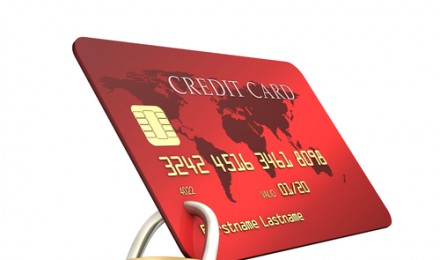There are about 180 million credit cards in the United States, with a total revolving balance of about $790 billion dollars in credit card costs. Each card has a varying number of fees, charges, penalties, and limitations included in the fine print of each contract. Below are some of the more common credit card costs that a consumer needs to be aware of when their eyes instantly look to the rewards and benefits of credit cards.
APR stands for Annual Percentage Rate on a credit card. The Annual Percentage Rate is calculated as the interest rate, for a payment period, multiplied by the number of payment periods in a year. Typically it shows up as the finance charge on a credit card bill. Many APRs are variable and are set relative to a benchmark interest rate, like the prime rate (eg. prime + 10.99%). Currently, credit card issuers are raising APR rates. The national average sits at a 14.9% APR, which is a record high. Among credit card costs, the APR is what consumers need to worry the most about if they do not pay their credit card balances in full every month.
Annual Fee –About 1 in 4 cards carry an annual fee, which can range from $18 to $500, with $50 being about the average.
Balance Transfer Fees – Credit card companies often try to entice cardholders with offers to transfer the balance to a different account for a fee, usually around 3%-5% of the balance being transferred. A few years ago it was a common practice to offer balance transfers for little or no money, but with the current economic and legal issues that credit card issuers face, credit card costs have increased, and the consumer will have to pay something for transferring balances.
Late Fees – Late fees on credit cards are those credit card costs charged when a card is not paid on time. Currently capped by the CARD Act of 2009, late fees in most situations are now set at $25.
Penalty Rate – The penalty interest rate on a credit card is the rate that is assessed when the card is past due, and depends on the contract as to when the rate is assessed. The penalty rate can get as high as 30% in some cases. Some limitations as to timing and notice of rates have been limited by the CARD Act, but penalty rates can still be one of the substantial credit card costs of which consumers need to be aware.
Other credit card costs: Occasionally credit card companies may make offers to their consumers, such as checks written against the card account with a reduced interest rate. Fees and rates may also apply to specific services in contracts as well, such as a different APR for cash withdrawals from ATM’s. Consumers need to be aware of various charges, fees, and interest rates for their credit cards.
A consumer can avoid many of the above charges simply by paying a credit card balance on time and in full every month. Paying in full every month results in no APR, no late fees, and no worries about penalty fees. Often even the annual fee may be waived with a phone call to the credit card company.
Awareness of credit card companies’ terms and charges are essential to understanding the expenses that may be possible with improper credit card usage. Consumers also need to be aware of changes to the credit card contract that may occasionally occur as the company changes terms – notice of which must be sent to the consumer in a timely fashion. With effective time and money management, a consumer can avoid most if not all of these charges. The future cost of interest and fees can be alleviated as well by judicious credit card use.
There are about 180 million credit cards in the United States, with a total revolving balance of about $790 billion dollars in credit card costs. Each card has a varying number of fees, charges, penalties, and limitations included in the fine print of each contract. Below are some of the more common credit card costs that a consumer needs to be aware of when their eyes instantly look to the rewards and benefits of credit cards.
APR stands for Annual Percentage Rate on a credit card. The Annual Percentage Rate is calculated as the interest rate, for a payment period, multiplied by the number of payment periods in a year. Typically it shows up as the finance charge on a credit card bill. Many APRs are variable and are set relative to a benchmark interest rate, like the prime rate (eg. prime + 10.99%). Currently, credit card issuers are raising APR rates. The national average sits at a 14.9% APR, which is a record high. Among credit card costs, the APR is what consumers need to worry the most about if they do not pay their credit card balances in full every month.
Annual Fee –About 1 in 4 cards carry an annual fee, which can range from $18 to $500, with $50 being about the average.
Balance Transfer Fees – Credit card companies often try to entice cardholders with offers to transfer the balance to a different account for a fee, usually around 3%-5% of the balance being transferred. A few years ago it was a common practice to offer balance transfers for little or no money, but with the current economic and legal issues that credit card issuers face, credit card costs have increased, and the consumer will have to pay something for transferring balances.
Late Fees – Late fees on credit cards are those credit card costs charged when a card is not paid on time. Currently capped by the CARD Act of 2009, late fees in most situations are now set at $25.
Penalty Rate – The penalty interest rate on a credit card is the rate that is assessed when the card is past due, and depends on the contract as to when the rate is assessed. The penalty rate can get as high as 30% in some cases. Some limitations as to timing and notice of rates have been limited by the CARD Act, but penalty rates can still be one of the substantial credit card costs of which consumers need to be aware.
Other credit card costs: Occasionally credit card companies may make offers to their consumers, such as checks written against the card account with a reduced interest rate. Fees and rates may also apply to specific services in contracts as well, such as a different APR for cash withdrawals from ATM’s. Consumers need to be aware of various charges, fees, and interest rates for their credit cards.
A consumer can avoid many of the above charges simply by paying a credit card balance on time and in full every month. Paying in full every month results in no APR, no late fees, and no worries about penalty fees. Often even the annual fee may be waived with a phone call to the credit card company.
Awareness of credit card companies’ terms and charges are essential to understanding the expenses that may be possible with improper credit card usage. Consumers also need to be aware of changes to the credit card contract that may occasionally occur as the company changes terms – notice of which must be sent to the consumer in a timely fashion. With effective time and money management, a consumer can avoid most if not all of these charges. The future cost of interest and fees can be alleviated as well by judicious credit card use.






